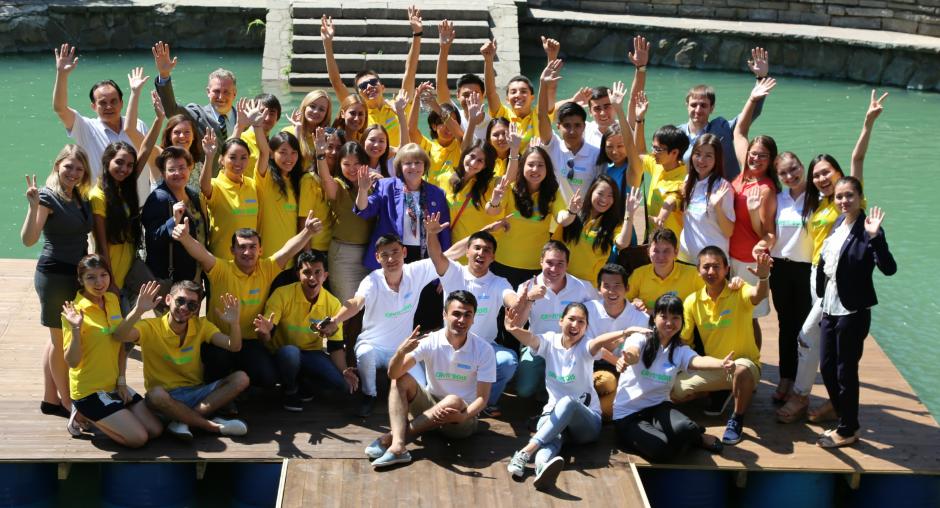OSCE-supported Central Asian Youth Network focuses on security issues in view of the 40th anniversary of Helsinki Final Act

ALMATY, 7 July 2015 – The annual OSCE Central Asian Youth Network (CAYN) forum and seminar began today in Almaty.
The three-day event was co-organized by the OSCE Programme Office in Astana with support of the U.S. Mission to the OSCE. It brought together some 50 university students and alumni from Central Asia, Afghanistan and Mongolia as well as representatives of the OSCE and expert speakers from Kazakhstan, Kyrgyzstan, Norway, Sweden and the United States.
The topic of this year’s forum “Forty Years After Helsinki: New (and Old) Challenges for Central Asia” was selected to mark the 40th anniversary of the Helsinki Final Act which led to the establishment of the OSCE. The participants will discuss key challenges for comprehensive security in Central Asia and beyond and review the changing nature of conflict and particular cases of responses to the threats across the OSCE area. They will also address the issue of civil society’s role in promoting fundamental freedoms and human rights and re-examine co-operation in Central Asia on its way to integration with a special emphasis on water governance and anti-corruption efforts.
Peter Mossop from the Office for Democratic Institutions and Human Rights and Anna-Katharina Deininger, Special Representative of the OSCE Chairmanship-in-Office on Youth and Security, will focus on engaging youth in promoting OSCE values and principles and addressing security challenges and threats in the wider region. Special attention will be paid to youth involvement in the communications campaign “OSCE United in Countering Violent Extremism.”
The forum will be followed by training workshops focused on political activism, networking, career building and presentation techniques. They will culminate with an outdoor exercise on emergency preparedness under the guidance of the International Red Cross with sessions on physical security, earthquake preparedness and protection of human rights in the time of conflict.
Ambassador Natalia Zarudna, the Head of the OSCE Programme Office in Astana, said: “Forty years after Helsinki the OSCE remains committed more than ever to a free democratic and more integrated world with fewer dividing lines. Its comprehensive approach to security should be further strengthened with proactive engagement of young people with their tremendous intellectual potential, energy, optimism and willingness to overcome stereotypes and bring about changes.”
Paul Fritch, Senior Advisor at the U.S. Department of State and former Director of the OSCE Secretary General’s Office said: “Civil society engagement is an integral part of the OSCE’s work and there’s no more important aspect of that than engaging youth.”
The event is part of the Office’s efforts to enhance young people’s understanding of contemporary security threats and challenges and explain the OSCE’s role in addressing them.
